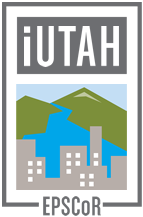Workforce Development News
February 23, 2017
Student Research on Utah Water Voices Survey Published
iUTAH undergraduate student researchers Phillip André Valle from Weber State University and Zack Oldroyd from Utah State University, along with sociology professor Courtney Flint and colleagues from USU, featured their work with the Utah Water Voices survey conducted in summer 2015 in a recently released paper. A summary analysis of the study has been published in the Journal of Rural Social Science.
Both Valle and Oldroyd were part of the iFellows program, a research experience for undergraduates focused on iUTAH water projects in the state. The paper and project highlighted public water perspectives in parks in two Utah cities using an interactive form on iPad tablets to guide paperless interviews, which were also audio recorded. More information and audio samples can be found at Utah Water Voices.
The abstract of the paper states that the “undergraduate research assistants played key roles in carrying out this intercept survey project, highlighting potential for future application of this method with students, community groups, or citizen scientists.”
In addition to this paper on “Public Intercept Interviews And Surveys For Gathering Place-Based Perceptions: Observations From Community Water Research In Utah,” the publication includes Carla Trentelman’s research on “The Case for Personal Interaction: Drop-Off/Pick-Up Methodology for Survey Research,” and “Effectiveness of the Drop-Off/Pick-Up Survey Methodology in Different Neighborhood Types,” by Doug Jackson-Smith, Courtney Flint, Carla Trentelman, Grant Holyoak and others.
Journal Reference: Journal of Rural Social Science
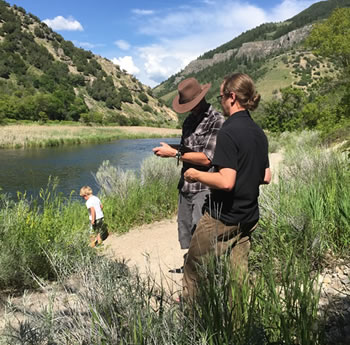
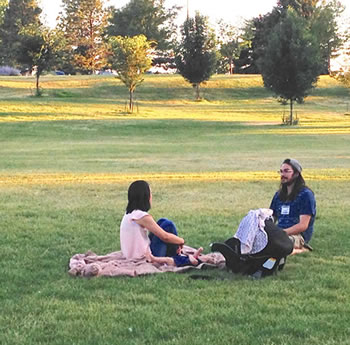
February 6, 2017
iUTAH Students Present Research on Capitol Hill
Undergraduate students from the University of Utah and Utah State University presented their research for Utah lawmakers in the rotunda of the state Capitol in Salt Lake City on Tuesday, Jan. 24, 2017. Due to weather-related issues, USU did not make it down for the event, and will showcase their work at a later date. Two iUTAH students were selected to present research:
Hyrum Tennant, USU student & iUTAH trainee, (mentor Beth Neilson)
Project title: Groundwater Influences on the Logan River Watershed
Adam Whalen, UU student & 2016 iUTAH iFellow (mentor Sara Yeo)
Project title: A Comparative Analysis of Attitudes Toward Drinking Water Between Utah and the Nation
The iUTAH project involves students in a wide range of academic disciplines all related to water research in the state. While participating in research, students learn valuable skills on poster development and engaging in one-on-one and group presentations. As a double major in Communication and Political Science, Adam Whalen said he was especially “excited about how involvement with research can have real world implications in government, and by extension, society,” adding that “this presentation was a wonderful hybrid of my academic interests."
“Capitol Hill also proved to be a fantastic venue, it had an aura of importance and historicity that made me feel like I was a part of something greater for the state of Utah,” said Whalen. “It one of the best experiences in my undergraduate career. It sparked the same creative drive I had during my time as an iFellow, and reminded me of why I got started in research in the first place.”
More information on the event and participants is available in the articles listed below.
Press: UU News | Utah State Today | Deseret News | Daily Utah Chronicle
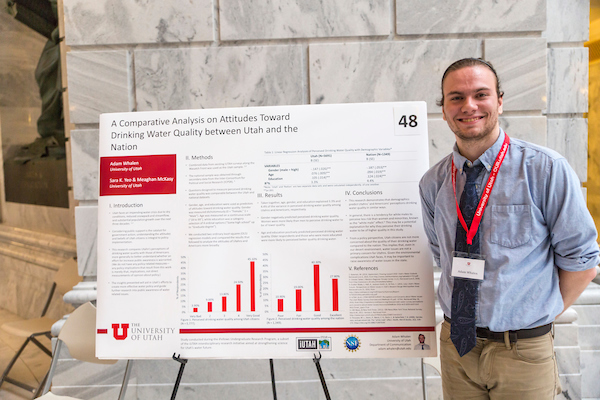
Credit: UU Office of Undergraduate Research
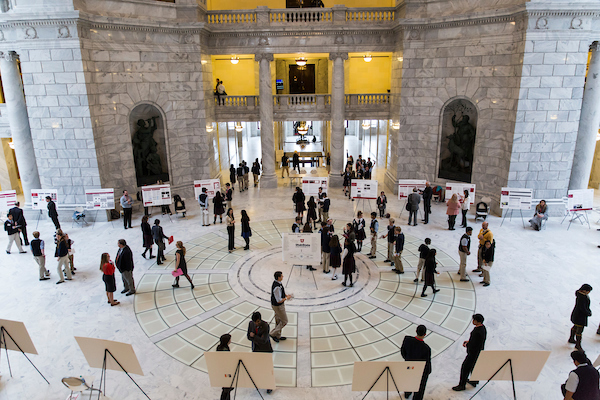
January 12, 2017
Utah Climate Scientists Anxious Over Threatened NASA Cuts...
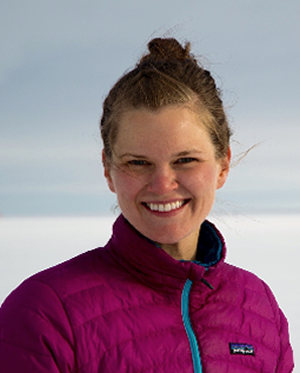
Utah Valley University and iUTAH researcher McKenzie Skiles was featured in the news. The Salt Lake Tribune recently reported on potential funding threats to NASA’s climate research.
An excerpt from the news story said that Skiles “is worried about her ability to find future funding under Trump's administration. Her current funding doesn't come through NASA, Skiles said, but prior to accepting a position at UVU, she worked as a postdoctoral scholar in NASA's Jet Propulsion Laboratory. ‘NASA is a place I would look to in the future" for funding, she said. "And if that funding is no longer available, that limits the opportunities.’ Funding from NASA is especially important for young scholars.”
Skiles is a recent recipient of an iUTAH 2017 Research Catalyst Grant which will fund her research looking at the constraining physical controls on snow hydrology along the Wasatch Front. The grant brings together collaborators from each of Utah’s research institutions, including Janice Brahney, Utah State University, Greg Carling, Brigham Young University, and Jim Steenburgh, University of Utah.
Press: Salt Lake Tribune
December 9, 2016
WSU Students Present Undergraduate Research
A mini-symposium was held for the fourth straight year on the campus of Weber State University. It featured research posters and presentations from iUTAH’s Summer Institute and the Undergraduate Research Fellows (iFellows) Program. The event was co-hosted by Carla Trentelman, associate professor of Sociology, and Dan Bedford, professor of Geography and WSU honors program director, and attended by students, faculty, administrators, and friends of iUTAH
“The Weber State iUTAH team, and this is very much a team effort, has felt from the beginning that it was important to give our iUTAH students the chance to share their experiences with the WSU community more broadly,” said Bedford. “We’ve had great representation from excellent students in all four years of the iFellows and Summer Institute programs, and it's good for everyone to see what excellent research our students were engaged in.”
Faculty mentors also use the event as a recruitment tool, reminding all in attendance to start thinking about upcoming summer iFellows program, which students may apply for starting in January 2017. Students who attended this program included 2015 iFellow André Valle; Andrew Hackett and Cynthia Elliott, 2016 iFellows; and William Soule and Maggie England, representing two of the five 2016 Summer Institute peer mentors.
“The iUTAH collaboration has provided great opportunities for our faculty and students to engage in research and scholarship related to water resource management in the state, said Charles "Chuck" A. Wight, president of WSU. “I'm grateful to the faculty at Weber State, Utah State University and the University of Utah for their roles in mentoring our students while carrying out the research and in preparing their work for publication and presentation.”
It is always an enriching experience to visit our partner institutions and see what the students have learned and gained on reflection, after returning to their schools in the fall.
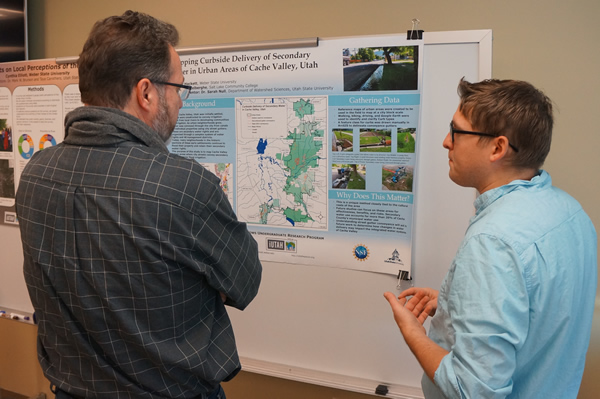
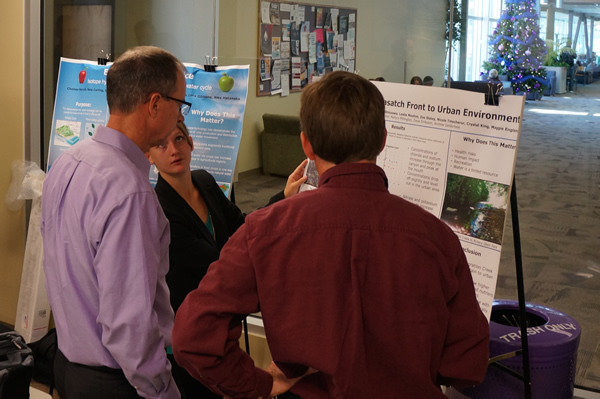
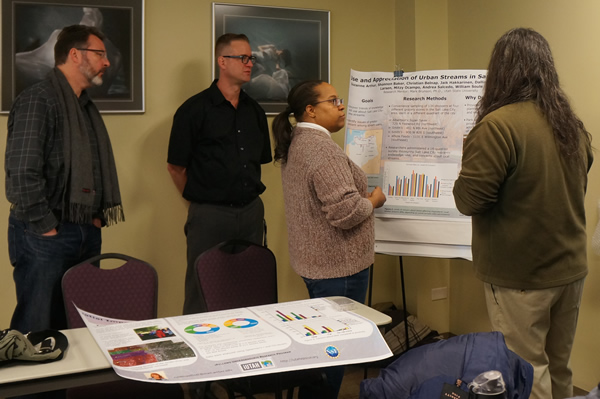
December 6, 2016
Research Awards Build STEM Capacity
Building a scientific community in Utah means reaching a wide variety of citizens and students and giving them the opportunity to join in STEM-oriented research. Many of Utah’s students attend universities throughout the state where the capacity to conduct scientific research is somewhat limited. Professors at these institutions, also called primarily undergraduate institutions (PUls), often have the inclination, but lack time and resources to involve themselves and their students in current science research.
This is why iUTAH, an interdisciplinary research and training program aimed at strengthening science for Utah’s water future, has established a three-tiered approach to funding research awards. For the past four years, we have been working to extend our collaborative culture of multi-institutional research to PUIs across our state. By offering faculty at these institutions the opportunity to apply for traditional research awards, professional development grants, and release time awards, iUTAH is addressing, in a targeted, strategic way, the factors that most limit the participation of PUIs in research.
“As a former PUI faculty member myself, I understand the unique pressures and limitations that come with this environment,” says Andy Leidolf, Assistant Director of iUTAH. “It is tremendously rewarding to be able to provide needed support to leverage the ample talent and enthusiasm for research that exists at these institutions on behalf of our statewide research enterprise.”
In five years, iUTAH has funded over $300,000 towards this effort. This year, researchers at Utah Valley University (UVU), Westminster College, and Weber State University (WSU), will receive over $50,000, up to $20,000 per project, in funding as part of the 2017 iUTAH Research Catalyst Grant (RCG) initiative. Professors McKenzie Skiles, UVU, Frank Black, Westminster College, and Bridget Hilbig, WSU, have each received award funding to work with undergraduates, other faculty members, and with other research institutions, community groups, and professional organizations across the state.
“Looking at our most recent group of PUI awardees teaming up with research faculty, their proposed research is truly cutting edge,” said University of Utah professor and State Program Director of EPSCoR Paul Brooks. “These proposals would be incredibly competitive at any national panel that I have sat on for the National Science Foundation or Department of Energy.”
The project by McKenzie Skiles will look at the constraining physical controls on snow hydrology along the Wasatch Front. It brings together collaborators from each of Utah’s research institutions, including Janice Brahney, Utah State University, Greg Carling, Brigham Young University, and Jim Steenburgh, University of Utah.
Frank Black’s project will expand his earlier work on the Great Salt Lake (GSL) to examine wildfire ash and GSL dust as sources of heavy metals to Utah’s aquatic ecosystems. Collaborators include Greg Carling, Brigham Young University and Evan Glenn, US Forest Service, Uinta-Wasatch-Cache National Forest.
The third RCG awardee, Bridget Hilbig, will focus her work on enhancing soil biological complexity to conserve water in urban agriculture, working with Steven Burian, University of Utah as a collaborator. By better understanding the factors affecting urban ecosystem water-use efficiency, she hopes to improve our ability to predict urban water cycles in Utah. Hilbig also received a professional development grant to attend a Council on Undergraduate Research (CUR) Institute. With this additional training, she aims to “develop an interdisciplinary, multi-institutional research group at WSU that includes undergraduate students learning from, and interacting directly with, graduate students, postdoctoral researchers, and faculty members at their own institution and beyond.”
Among the 15 previous RCG grantees, Jacqualine Grant, an assistant professor of biology and museum curator of the Garth and Jerri Frehner Museum of Natural History at Southern Utah University, is the first to receive a release time award. Grant’s previously funded project involving a demonstration green roof exhibit and associated outreach has reached over 1,800 faculty, undergraduates, and students K-12 since its installation in 2015. In discussing the project’s accomplishments, she said “green infrastructure is an underutilized water-saving practice in southern Utah.” She will use the release time to develop several proposals with colleagues at the University of Utah and Northern Arizona University.
“By having researchers at the PUIs engaging with faculty at the more research-intensive universities, it opens science as a process up to all the PUI students in all those classes,” says Brooks. “And seeing that ability, the light bulb that goes off for those students, it’s not just memorization; it’s not just repeating the knowledge. They learn that they can contribute to something new.”
In addition to these opportunities, iUTAH continues to offer ongoing professional development to its participants through co-sponsoring events such as the Alda Center for Communicating Science held this fall, in partnership with the Offices of the Vice President for Research at Utah State University and the University of Utah. The next collaborative effort will be a Broader Impacts Workshop in March 2017 in partnership with the Vice President for Research office at the University of Utah.
For more how the RCG awards are working to strengthen iUTAH’s collaborative research network, visit the full article…
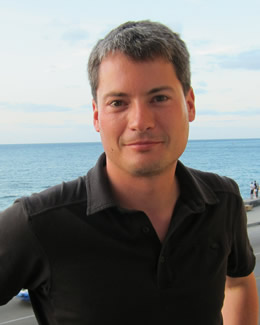
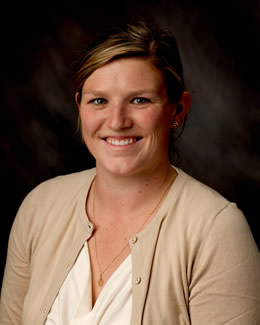
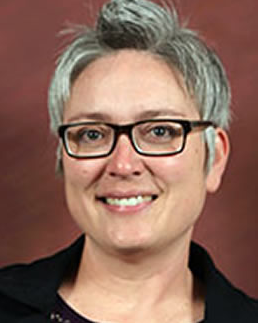
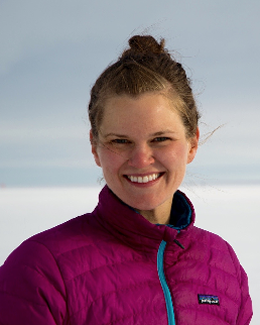
(lower left) Jacqualine Grant, SUU and McKenzie Skiles, UVU
